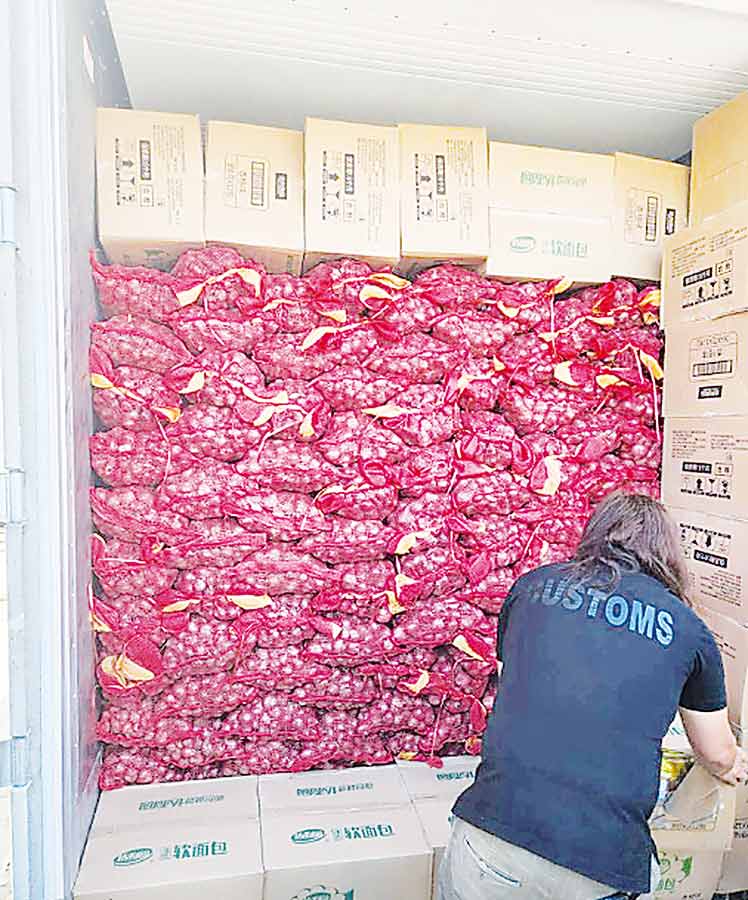The government moves to address the woes of the agriculture sector such as smuggling, the avian flu and African swine fever (ASF) as well as the effects of El Niño.
President Marcos Jr. yesterday vowed to unmask and put an end to the agricultural cartels in the country and to bring the syndicates involved to justice.
Marcos also emphasized the need to revitalize the livestock and poultry industries hit by diseases amid the Bureau of Animal Industry’s (BAI’s) completion of the first phase of an animal vaccine efficacy trial which were found to be safe and effective.
The President, in a media interview on the sidelines of the 6th Livestock Philippines Expo 2023 in Pasay City, said he did not impose a deadline when he directed the Department of Justice (DOJ) and the National Bureau of Investigations (NBI) to look into the reported hoarding and price fixing of agricultural products such as the onions.
Marcos said the probe stemmed from the findings of the House of Representatives about the hoarding and controlling of prices of onions that resulted in its high prices in 2022.
The House found that a cartel has engaged in various activities including farming, importation, local trading, warehousing, and logistics.
This resulted in a sharp increase in onion prices starting in July 2022 perceived to be due to a shortage of supply. However, data from the Department of Agriculture-Bureau of Plant Industry showed
there was “only a modest shortage of approximately 7.56 percent in 2022, which could not justify the significant inflation rates reaching 87 percent in December of that year”.
Cold storage facility owners also reported during the hearings there was ample supply of onions during the period of price surges.
The President said the goal of the government is to put an end to these cartels along with their illegal activities from smuggling, hoarding and price fixing which are detrimental to the country’s agricultural sector, the farmers and economy.
Marcos said it is also tantamount to economic sabotage.
“My orders to DOJ and NBI is for them to identify, not just those engaged in onions, but also the syndicates — there are a lot of syndicates operating — to go after them and top what they are doing,” he said.
The DOJ, in response to the Presidents directives is collaborating with other government agencies such as the Bureau of Customs (BOC), the Department of Agriculture (DA), and to address the issue.
At the event, Marcos said the vaccine against ASF was found to be 80 percent effective and safe to use.
Marcos said this development would allow the Philippine Food and Drug Administration (FDA) to issue a certificate of product registration (CPR) for the vaccines while the second phase of the trials are underway.
“This gives us great hope as we have been waiting for this for a very long time. However, it is not a reason for complacency as we are being continuously warned by those who have studied the vaccine. The vaccine is 80 percent effective. There is still a 20 percent-chance that we need to look out for very carefully,” he said.
The President said the government is also making progress in the procurement of Avian Influenza vaccines, and has called manufacturers to register their products with the FDA while the guidelines to administer the same are being finalized.
Marcos said the government is pursuing different measures aimed at the detection and prevention of the spread of animal diseases: the Integrated National Swine Production Initiatives for Recovery and Expansion program that has already benefited 430 farmers’ cooperatives and associations with more than 13,000 members, and an estimated 27,500 individual farmers.
Marcos Jalso emphasized the need to improve current agricultural infrastructures and value chain systems to cushion the impact of the El Niño.
The Philippine Atmospheric, Geophysical and Astronomical Services Administration has declared the other day the onset of El Niño which is expected to intensify in the coming months, and may persist until the first quarter of 2024.
The President expressed optimism that the impact of the El Niño on the fisheries sector will be minimal while its impact especially on the water needs of the poultry and livestock is “solvable.”




